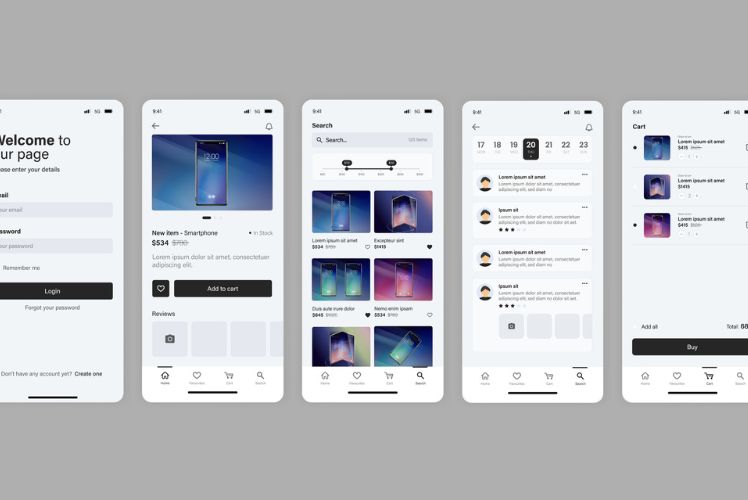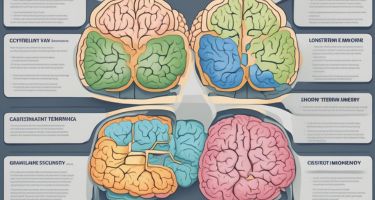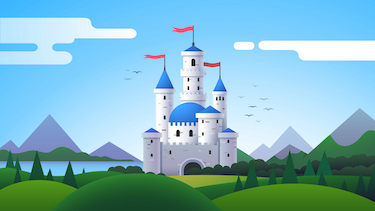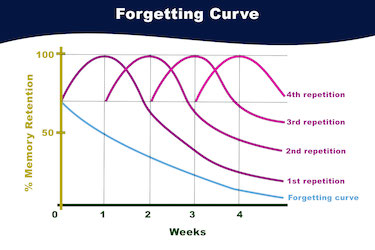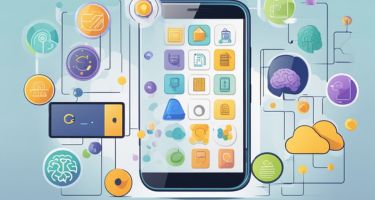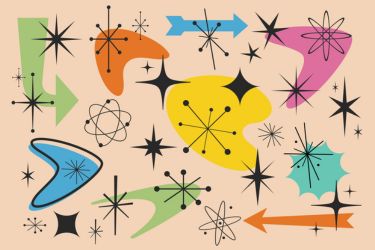Keeping our minds sharp matters just as much as staying physically fit. Many of us want better memory and stronger concentration, but it's not always easy to know where to start. The right brain-training apps can help us boost our memory and sharpen cognitive skills through simple, science-backed exercises and games.

In this post, we’ll look at the seven best apps designed to improve memory, focus, and thinking across different age groups. Each one offers unique activities that are user-friendly and fit around our daily routines. We’ll discover which features to look for and how these apps help us stay mentally alert.
Key Takeaways
- The best brain-training apps use researched exercises to improve memory.
- Useful features and easy-to-use design set top apps apart.
- Using these apps regularly helps us keep our minds active.
Criteria for Selecting Effective Brain-Training Apps

When we look for brain training apps to sharpen memory and cognitive function, certain factors stand out. Evidence-based design, personalisation, and user feedback help us identify tools that make a real impact.
Key Features to Enhance Memory and Cognitive Function
Effective brain training apps offer a range of exercises targeting memory, attention, and focus. We should look for apps that include:
- Memory exercises: short-term and long-term recall games
- Attention trainers: tasks that require sustained focus
- Problem-solving challenges: puzzles and logic tasks for cognitive flexibility
A well-rounded app covers various areas of cognitive training. It is important that the activities are varied, engaging, and updated often. Visuals and sound cues can help maintain interest while supporting different learning styles. Clear instructions and results tracking allow us to see progress.
Personalisation and Adaptive Learning Mechanisms
Personalised experiences are key for motivation and growth. The best apps assess our initial skills and adjust the difficulty of tasks. Adaptive learning mechanisms mean games become more challenging as our abilities improve.
Some apps ask for preferences or set goals to tailor exercises. Features like daily reminders, custom difficulty settings, and targeted skill training help keep the experience relevant. This means we spend time on areas that matter most for our cognitive needs.
Comparison Table: Personalisation Tools
| Feature | Benefit |
|---|---|
| Skill Assessment | Sets appropriate starting level |
| Difficulty Adjustment | Matches our current progress |
| Goal Setting | Personalises training towards our needs |
| Progress Tracking | Shows improvement and maintains focus |
Scientific Validation and User Reviews
A strong evidence base increases trust in a brain training app. We look for apps that reference clinical studies or use neuroscience-backed methods. Reputable apps often publish research partnerships or cite studies on their websites.
User reviews are another valuable resource. High ratings and positive experiences suggest the app delivers real benefits. We pay attention to comments about improved memory, ease of use, and lasting engagement. Negative reviews highlight issues like technical glitches or lack of challenge, which help us avoid less effective tools.
Combining scientific support with honest feedback helps us choose apps that work in practice, not just in theory.
Overview of the Top 7 Brain-Training Apps to Sharpen Your Memory

Brain-training apps have become widely used tools for improving memory, focus, and mental agility. These digital programmes use a blend of brain games, memory exercises, and cognitive challenges, each with their own unique approach to help us sharpen different mental skills.
Lumosity: Comprehensive Brain Workouts
Lumosity is one of the most popular brain-training platforms, known for its diverse range of games that target several cognitive skills. We benefit from over 50 brain games, each designed by neuroscientists and tested for effectiveness.
Lumosity tracks our progress, adjusting difficulty based on our performance and strengths. Its daily workouts focus on memory, attention, flexibility, speed, and problem-solving.
We can access detailed feedback through the Lumosity Performance Index, which helps in identifying areas to focus on next. The app encourages regular use with daily reminders and short game sessions, making it easy to include in our routine.
Peak: Gamified Mental Agility
Peak stands out for its engaging interface and game-like experience. We get access to more than 40 games that work on memory, attention, problem-solving, language, and mental agility.
Each session is tailored by the app’s “Coach”, using our answers and progress to recommend new challenges. Peak’s clear visual statistics allow us to track improvements easily.
The app encourages consistent practice by offering short, fun game bursts rather than long exercises. Its leaderboard feature lets us compare our scores with friends, adding a social and competitive edge to mental training.
CogniFit: Personalised Cognitive Assessments
CogniFit offers a unique focus on personalised cognitive assessments. We start with a comprehensive test that evaluates our current memory, attention, and reasoning skills.
Based on our results, CogniFit creates a training plan that targets areas for improvement. With more than 30 brain games, the app guides us through tasks tailored to our cognitive profile.
CogniFit’s strength lies in its scientific backing, with many tasks developed for use in academic and clinical settings. Progress tracking helps us see how much specific cognitive skills, such as short-term memory or concentration, have improved over time.
Elevate: Skill-Based Cognitive Training
Elevate uses a skill-based approach, aiming to boost our daily mental performance. The app features games focused on core skills like reading, writing, maths, memory, and speaking.
Personalised daily workouts help us stay on track and see which cognitive domains we’re improving in most. The adaptive difficulty ensures that as we get better, the tasks stay challenging.
Feedback is detailed and actionable, giving us advice on how to improve specific skills. Elevate also includes progress reports that make it easy to see our achievements week by week.
Fit Brains: Emotional and Cognitive Growth
Fit Brains takes a slightly different route by including both cognitive and emotional development activities. We have access to over 60 games divided into categories such as memory, concentration, language, problem-solving, and emotional intelligence.
This holistic approach can help us not only improve memory and thinking skills but also increase our emotional awareness and decision-making ability. Fit Brains’ progress tracking lets us see how emotional and cognitive growth build together.
Customisable training sessions allow us to focus on particular goals. The app’s friendly visuals and short exercises are accessible to both beginners and those seeking regular brain workouts.
Eidetic: Memory Improvement via Spaced Repetition
Eidetic uses the science of spaced repetition to help us memorise information over time. We can add our own facts, notes, or vocabulary and let the app prompt us at the best moments to review, helping new information stick.
Unlike other brain games, Eidetic is practical for students and adults who want to remember personal or professional information, not just game scores. The reminders are timed based on proven memory research, making each session efficient and focused.
Eidetic tracks recall accuracy and ensures we practise at the right intervals. This targeted method strengthens long-term memory and is ideal for those needing to memorise specific facts, names, or concepts.
Mensa Brain Training: High IQ Society Challenges
Mensa Brain Training brings the experience of the high IQ society to our fingertips through challenging, scientifically designed exercises. The app offers daily workouts created in partnership with Mensa, focusing on problem-solving, logic, memory, and concentration.
Each session features a variety of puzzles similar to those found in actual Mensa entrance exams. Our progress is tracked over time and compared to global averages, giving us an objective measure of our abilities.
Regular practice is encouraged through leaderboards and rewards, making it appealing to competitive users. Mensa Brain Training is suitable for those who enjoy more logic-heavy challenges and want to push their cognitive limits.
How Brain-Training Apps Improve Memory and Cognitive Skills

Many brain-training apps use carefully designed games and exercises to target memory, attention, and logical thinking. These activities help us build mental strength, enhance everyday recall, and maintain sharper minds as we age.
Enhancing Working Memory and Recall
Working memory means holding and using information in our minds for short periods. Good working memory helps us remember shopping lists, follow directions, and complete tasks efficiently.
Brain-training apps like Elevate, Lumosity, and Peak include exercises that challenge us to recall patterns, shapes, or number sequences. Each session gives our memory a workout, helping us get better at quickly storing and using information.
Research suggests regular practice with these games can lead to small but valuable improvements in short-term recall. Over time, we may notice it becomes easier to remember names, facts, and daily details. Memory exercises not only improve recall but also support cognitive growth by keeping our brains active.
Boosting Attention, Focus, and Concentration
Attention, focus, and concentration are core parts of strong cognitive skills. Many of us struggle to stay focused when working, studying, or even having conversations.
Brain-training apps address this through tasks like spotting differences, completing timed puzzles, or following tricky instructions. These exercises push us to maintain mental effort across longer periods without becoming distracted.
Working on attention-based games can help us tune out distractions and process information more efficiently. This can be useful in school, at work, and in social situations where attention is important. Improved focus and concentration are important for memory since we need to pay attention to remember things well.
Supporting Problem-Solving and Reasoning Abilities
Problem-solving and reasoning let us tackle new challenges, make decisions, and analyse situations. Brain-training apps provide exercises like logical puzzles, pattern recognition, and quick maths problems to sharpen these skills.
Each brain workout encourages us to think creatively and find different solutions. This supports flexible thinking needed for complex tasks or unexpected problems.
Strong reasoning abilities also help us plan ahead and adjust when things change. As we practise with these apps, we can become better at breaking down problems into smaller steps, spotting errors, and making smarter choices both in and out of the classroom.
Supplementary Features of Leading Brain-Training Apps

Leading brain-training apps do more than just offer basic memory and puzzle games. Many now include smart progress tracking, guided relaxation, and exercises that help us build real-world skills for better cognitive health.
Adaptive Progress Tracking and Feedback
Most top apps use adaptive technology to track our progress over time. As we improve, the games adjust in difficulty to keep us challenged. This ensures personalised growth for each user and prevents activities from becoming too easy or repetitive.
Feedback comes in the form of daily, weekly, or monthly reports. We can see statistics on our reaction time and processing speed, as well as trends in our memory and mental agility. Some apps give badges or visual charts, which make tracking improvement easier and more motivating.
For groups or families, leaderboards and score comparisons are popular. This competitive touch helps us stay motivated and engaged in our training routines. The clear structure and regular feedback encourage us to continue and measure our own progress over time.
Incorporation of Meditation Sessions and Relaxation
Several brain-training apps now include meditation or relaxation sessions, recognising that mental well-being goes hand-in-hand with cognitive strength. These guided sessions typically involve deep-breathing, progressive muscle relaxation, or mindfulness, which can reduce stress and improve our overall focus and memory performance.
Many of us find these sessions useful when we need a break or want to reset after a period of intense mental work. Regular practice in relaxation methods can also enhance attention span, reduce mental fatigue, and prepare our brains for learning.
Some apps blend meditation with cognitive exercises, creating a balanced approach to mental fitness. This combination may not be present in every app, but those that offer it often stand out for their focus on holistic mental health.
Integration of Writing, Speaking, and Listening Exercises
Writing, speaking, and listening exercises are becoming a staple in advanced brain-training apps. Writing tasks can help us improve focus, memory recall, and language skills. These might include story prompts, daily journals, or vocabulary builders.
Speaking exercises challenge us to recall words, repeat sentences, or describe images out loud. This not only sharpens our speaking fluency but also strengthens the connection between thought and expression, boosting memory and mental agility.
Listening tasks often use short stories, conversations, or instructions. They test our ability to understand, remember, and process spoken information. Together, these exercises contribute to well-rounded cognitive development and support real-life communication skills.
Maximising Benefits: Tips for Effective Brain Training
To get the most out of brain training, we need to focus on creating steady habits, using a mix of digital and real-life challenges, and tracking our cognitive progress using tools and features built into many apps. These actions help our efforts feel engaging and meaningful, not just repetitive.
Developing a Consistent Daily Routine
Setting up a regular routine is key for brain training. When we practise brain games daily, our minds adapt and become sharper over time. Even short sessions, around 10 to 15 minutes, can keep us engaged without feeling overwhelmed.
It's easier to make progress if we plan our training at the same time each day, such as before breakfast or after dinner. Many apps, like Lumosity and Elevate, let us set reminders so we don’t forget our sessions. Sticking to a schedule turns mental training into a normal part of our day rather than a chore.
We can also keep track of which games challenge us the most and repeat them to target weaker skills. Consistency helps us build a stronger foundation for more advanced cognitive tasks over time.
Combining Brain Games with Real-World Challenges
To enhance results, it helps to balance brain games with real-life mental activities. This could mean doing puzzles, reading, learning new skills, or solving maths problems outside of the app. Mixing cognitive training with real tasks keeps our minds flexible and ready to adjust to new challenges.
We can use memory techniques, like repeating names after meeting someone or recalling shopping lists without looking. Playing strategy board games, joining quizzes, or even starting a new hobby also pushes us beyond what app-based games provide.
Blending our digital routines with hands-on activities gives us better results and keeps our training interesting. It also helps reinforce the skills we build so they carry over into daily situations.
Monitoring Cognitive Progress Over Time
Tracking our progress lets us see which skills improve and which need more focus. Most quality brain training apps include score histories, graphs, or feedback after each session. These features make it easier for us to notice if our cognitive function is improving.
We should review these performance reports weekly to spot trends. Setting simple goals, like raising our score in memory games by 10% within a month, keeps us motivated.
If we notice our scores are not improving, we can switch up the types of games or increase the difficulty. Regular monitoring ensures our practice stays effective and matches our needs, making each session more valuable.
Frequently Asked Questions
Many apps now offer science-based activities for memory, focus, and thinking skills. We can find a range of choices, from free options to adult-specific games, both with and without subscriptions.
What are the top free brain training apps available?
We can find several free brain training apps such as Elevate, Peak, and Lumosity. Each of these offers daily exercises to target memory, attention, and problem-solving. While the core features are free, some extra features may require payment.
Which brain games for adults offer the best cognitive enhancements?
Games like Lumosity and CogniFit provide activities developed by experts in neuroscience. These focus on skills such as memory, logic, and mental agility. Elevate has also been highlighted for its positive impact on thinking and cognitive skills in adults.
Are there any effective brain exercise games available online?
We can use web-based platforms like Brain Metrix, Memorado, and BrainBashers for effective online brain exercises. These sites provide mental games and puzzles that do not always need apps or downloads. Many of these games let us practice memory and reasoning skills directly in our browser.
Can you recommend brain training apps that don't require a subscription?
Peak and Fit Brains Trainer offer a range of free games that do not require a subscription. While some premium content may be available, the main exercises remain free. Downloading these apps provides easy access to daily brain workouts without the need for ongoing payments.
What are the best apps for improving memory and concentration?
Apps like Lumosity, Elevate, and CogniFit are well regarded for their specialised memory and focus activities. These apps include regular training sessions designed to help us remember more, stay focused, and process information faster. We can choose those that best fit our individual needs and training goals.
Where can I find brain games designed specifically for adults?
Adult-specific brain games are available on platforms such as Lumosity, Elevate, and CogniFit, which focus on advanced challenges. These apps tailor their activities to adults, offering exercises on planning, problem-solving, and concentration. We can also search Apple’s App Store or Google Play by using keywords such as “brain games for adults” to find more options.

